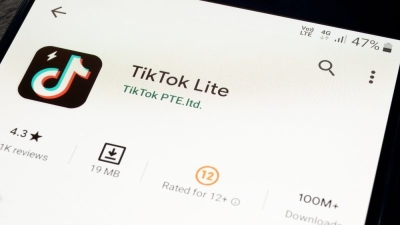The EU made the case for digital – now the skills must follow

Organisations of all sizes, which form our academic institutions, governments, municipalities, and the business that we patronise are undergoing digital transitions. Even at the individual level, many of us are digitising aspects of our lives and witnessing the social, economic, and environmental benefits. This makes at least a basic level of digital education practically indispensable.
The European Commission estimates that the move to a resource-efficient, circular, and digitised economy could create more than 1 million jobs by 2030. Artificial intelligence and robotics alone will create almost 60 million new jobs worldwide in the next 5 years. In a fast- moving labour market and society, lifelong learning must become a reality. The EU Digital Decade targets reflect the need to act now; in order to prepare for a future that some say is already upon us.
The 2030 Digital Decade Agenda aims for at least 80% of the population (aged 16-74) to have basic digital skills by 2030. In 2021, this was at only 54%. With a view towards the future of work, the EU aims to have at least 20 million ICT specialists employed within the Union by 2030. There were 8.4 million such specialists in 2020.
During the 27 March EURACTIV-GIGAEurope Digital Debate Series event, Stefan Olsson, (Deputy Director-General of DG EMPL, European Commission) linked skills to the future of ‘European productivity’ and described parallel digital divides. The first divide is a gap in access to digital skills and connectivity. The second issue involves a disconnect between the skills and experience that top business leaders seek in new recruits and the profiles that human resource managers may overlook because the candidates are without a degree or accredited certification.
As Europe continues along the inexorable path towards green and digital transitions, its global competitiveness is linked to the development, evaluation, and continued maintenance of digital skills. During the recent virtual conference, Sylvie Brunet MEP (Member, EMPL Committee) remarked: “The European Union will meet the challenge of the digital transition and stay competitive only if the EU equips all citizens with affordable and accessible programs to upskill and reskill its workforce.”
The need for policymakers, recruiters, and Europe’s workforce to think and operate in new ways is increasingly apparent. The recent discussions among policymakers and companies (seeking talent within the digital sector) reveal the full breadth of roles available within the sector.
Anders Lindholm (Counsellor of Educational Affairs, Permanent Representation of Sweden to the EU), is a proponent of changing the way that these roles are marketed. He stated: “We don’t fully explain what these jobs really entail.” He notes the diverse skills needed by gaming companies, for instance, and stated only a fraction of the roles require coding and highlighted the roles for artists and historians.
Drawing from first-hand experience, Thomas Mulder (Executive Director HR, Internal Comms and Workplace, VodafoneZiggo) explains that “The digital transformation means there is a massive demand for new skills in a tight labour market, which means that companies need to both attract these skills and, at the same time, offer development opportunities to their employees to learn these new skills.”
In addition to economic needs linked to the labour market and European productivity, there are needs at the individual level. Understanding how to use digital tools, manage privacy settings, and employ good cybersecurity practices isn’t just for early adopters. Most minds are open to digital tools such as online platforms for job searches, social media, streaming services for media content, and online shopping. Moreover, digital technology facilitates many administrative tasks such as applying for visas, accessing children’s grades, and obtaining birth certificates.
There are several factors that contribute to the disparities. Raffaela Kihrer (Vice President, The Lifelong Learning Platform) said “There are a number of initiatives at local and regional level in adult education and community centres that promote digital skills, however, the lack of access to the technology and a good internet connection remains an issue.”
Further examining the underlying issues, while acknowledging that the lack of connectivity infrastructure contributes to the digital divide, Georgi Dimitrov (Head of Unit, Digital Education, DG EAC, European Commission) noted “There’s a whole group of people who can’t use the services that are provided due to a lack of skills. The mismatch between the availability of these services and the population that cannot take these into account is a real issue with the move into e-government, e-health, or digital learning.”
Telecommunications companies are working to mitigate a skills gap among youth by providing free access to connectivity, devices (such as laptops and tablets), and classroom collaboration software for students and teachers.
Fully aware of the connectivity gaps in rural and remote communities, providers have also furnished students and teachers with SIMs. Because curricula differ across schools, companies work to establish partnerships with local governments to support the needs of each school. Some providers also partner with a network of European Ministries to produce toolkits that give families, educators, and children practical assistance with online safety, cyberbullying, and critical thinking.
European governments, civil society organisations, and the connectivity industry will continue to innovate and increase the availability of digital education tools. However, citizens must know that they are available and understand how to access the resources.
To learn more about GIGAEurope’s work follow us on Twitter and LinkedIn.



